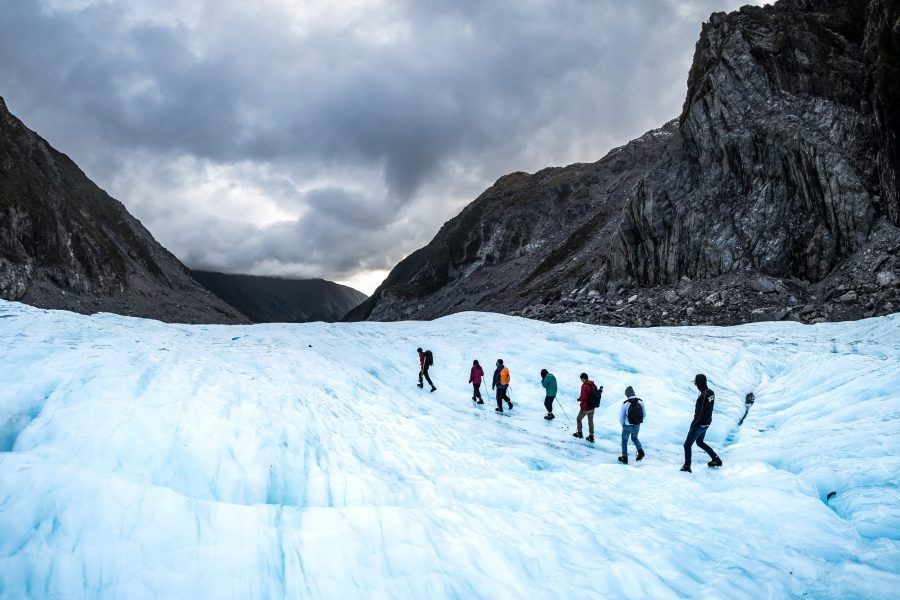New Zealand's tourism sector is a vital cog in its economic machinery, contributing over 10% to the nation's GDP. As a venture capitalist evaluating the potential of investing in this sector, understanding its multifaceted dynamics is crucial. This article will delve into the advantages and challenges of tourism in New Zealand, supported by data-driven insights and case studies, while addressing common misconceptions and future trends.
Understanding the Economic Impact of Tourism in New Zealand
Tourism is one of New Zealand's largest export earners, with an extensive ripple effect across various sectors, including hospitality, transport, and retail. According to the Ministry of Business, Innovation, and Employment (MBIE), tourism generated NZD 41 billion in the year ending March 2020. This highlights its significant role in the economy, supporting over 230,000 jobs directly and indirectly.
Case Study: Queenstown's Transformation
Problem: Queenstown, a small town in the South Island, struggled with economic growth due to its reliance on agriculture and mining.
Action: By capitalizing on its natural beauty and establishing itself as a hub for adventure tourism, Queenstown attracted international tourists, significantly boosting local businesses.
Result: The town's GDP grew by 50% over a decade, with tourism accounting for 60% of its economy. New businesses emerged, and employment rates improved dramatically.
Takeaway: This transformation underscores the potential of strategic tourism development in fostering regional economic growth.
Pros and Cons of Tourism's Economic Contribution
Pros:
- Economic Diversification: Tourism provides New Zealand with economic resilience by reducing reliance on traditional sectors like agriculture.
- Job Creation: The sector supports a wide range of jobs, from service and hospitality to management positions.
- Infrastructure Development: Increased tourism has led to improved infrastructure, benefiting both visitors and residents.
- Cultural Exchange: Tourism fosters cultural understanding and exchange, enhancing New Zealand's global image.
Cons:
- Environmental Impact: The influx of tourists can strain natural resources and lead to environmental degradation if not managed sustainably.
- Seasonal Variability: Tourism can be seasonal, leading to fluctuations in income and employment.
- Overtourism: Popular destinations may suffer from overcrowding, affecting local communities and the visitor experience.
- Dependency Risk: Over-reliance on tourism can make regions vulnerable to global disruptions, such as pandemics.
Data-Driven Insights: Realities and Misconceptions
Myth vs. Reality
- Myth: Tourism only benefits large cities. Reality: Smaller towns like Rotorua and Kaikoura thrive on tourism, showcasing its potential to uplift rural economies. (Source: Stats NZ)
- Myth: Tourism leads to permanent environmental damage. Reality: With sustainable practices, tourism can coexist with environmental conservation, as seen in Fiordland National Park.
Future Trends and Predictions
The future of tourism in New Zealand looks promising, with significant potential for growth and innovation. By 2030, experts predict a 25% increase in tourist arrivals, driven by emerging markets like China and India. The integration of technology, such as AI-driven personalized experiences, will enhance visitor engagement and satisfaction.
Furthermore, sustainable tourism practices will become mainstream, with a focus on reducing carbon footprints and promoting eco-friendly travel. The government's commitment to enhancing infrastructure and promoting regional tourism will play a pivotal role in this evolution.
Conclusion and Call to Action
New Zealand's tourism industry presents a compelling opportunity for venture capitalists seeking to invest in a sector that not only offers substantial economic benefits but also contributes to cultural and environmental sustainability. By understanding the pros and cons, addressing common misconceptions, and staying abreast of future trends, investors can make informed decisions that align with both economic goals and ethical considerations.
As you contemplate your next investment move, consider the transformative power of tourism. Engage with local stakeholders, support sustainable initiatives, and be part of New Zealand's journey towards a thriving, balanced economy.
What’s your take on the future of tourism in New Zealand? Share your insights below!
Related Search Queries
- Economic impact of tourism in New Zealand
- Sustainable tourism practices in New Zealand
- Future trends in New Zealand tourism
- Tourism investment opportunities in New Zealand
- Environmental challenges of tourism in New Zealand































